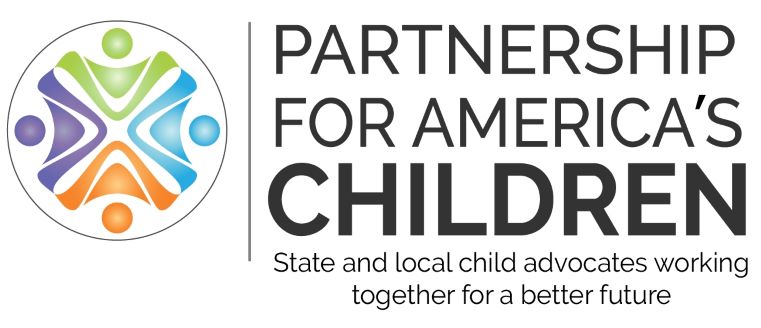East St. Louis Child Poverty Forum
On September 10, 2024, Children’s Advocates for Change held a child poverty forum in East St. Louis at the Wyvetter H. Young Higher Education Campus. Children’s Advocates for Change President  Dr.Tasha Green Cruzat moderated the event, which was attended by more than 120 people.
Dr.Tasha Green Cruzat moderated the event, which was attended by more than 120 people.
At the height of the community growth in the 1950s, the city of East St. Louis had more than 82,000 residents. Today, that population is down to just under 18,800 with a poverty rate of 31.6% (more than double the state poverty rate of 11.8%). The child poverty rate among the city’s 3,339 children is even higher: 48.1% (compared to a statewide child poverty rate of 15.9%).
Child poverty can impact a child’s health (physical and mental), educational attainment, and future earnings as well as increase the risk of child maltreatment. Maltreated children are at increased risk for behavioral, physical and mental health problems in their adult lives.
Poverty Forum Speakers, Moderators and Panelists
Illinois State Police 2023 East St. Louis Crime Data
Data from the East St. Louis School District 189 Report Card

Deaconess Foundation President and CEO, Rev. Bethany Johnson-Javois welcomed attendees to the Forum.
The President of the Children’s Defense Fund, Rev. Dr. Starsky Wilson was the forum’s featured guest. In his remarks, he stated that child poverty is about robbing young people of opportunities, and we need to do all that we can to unlock those opportunities.
Noting the success the 2021 enhancement of the federal child tax credit had in reducing child poverty nationally, Rev. Dr. Wilson noted that the failure to extend the enhanced credit beyond one year proved “we lack the public will to keep it because we don’t think children deserve to live out of poverty”.

Dr. Tasha Green Cruzat and the Rev. Dr. Starsky Wilson
The Rev. Dr. Wilson talked about the need to restructure the language we use around poverty so as not to stigmatize our children and the need to build a power base to bring about the necessary changes.
Dr. Renee Ryberg of Child Trends helped set the stage for our panel discussions with a review of local data that shows nearly half of all East St. Louis children are in poverty and nearly one-fifth (18.7%) of all residents are in deep poverty.
Other data presented by Dr. Ryberg, showed the percentage of adults with bachelor’s degrees is significantly lower than the statewide average as is thepercentage of individuals with access to high-speed internet service. In addition, the chronic absenteeism rate for students in the local school district is significantly higher than the statewide percentage.

Panelists Dr. Tiffany Gholson, East St. Louis District 189 Superintendent Arthur R. Culver (speaking) and Stephanie Herling
Chronic absenteeism was just one of the subjects that members of our education panel took up in their discussion. East St. Louis District 189 Superintendent Arthur R. Culver talked about a turnaround in academic performance being more than just additional financial resources. It is also, he said, about changing the mindset of faculty.
“We had educators that were providing resources to students, teaching students, but did not really believe in their hearts, minds, and souls that kids could get the job done,” said Culver. He also spoke about how the pandemic, and stay-at-home learning, stalled the progress students – and the district at large – were making in academic performance.
Culver noted for academic performance, and helping curb chronic absenteeism, the importance of having quality, “qualified staff that are really connected with kids and believe that they have the ability to learn.”

Sheila Burton
Panelist Shiela Burton, Executive Director of Every Child Education Equity Project, stated that a key ingredient in that attention of teachers to students,particularly in cases where a large number of students have been exposedtoadverse childhood experiences, is radically smaller class sizes that will help with more individualized instruction.
Adverse childhood experiences, not the least of which is exposure to crime, also impact children’s health.
Dr. Safiya McNeese-Ruffin of the SIU Family Medicine Residency Program in Alton, noted how area children are in a constant state of fight or flight and, with the high stress levels, their bodies are unable to rest. She noted how such a condition, particularly in young children, can lead to cognitive issues, behavioral challenges, and poor school performance.

Moderator Dara Munson and panelist Dr. Mariana Souto-Manning
Dr. Mariana Souto-Manning, President of the Erikson Institute, touched upon how poverty and other adverse childhood experiences impact brain developmentin young children. She also talked about the impact of high levels of stress on children and parents – who worry about their financial situation and in many cases the ability to properly feed their children.
Dr. Souto-Manning noted the importance up building up the community infrastructure for prenatal services and addressing mental health issues for children in child care.

State Senator Christopher Belt, State Representative Kevin Schmidt, and Illinois State Police Lieutenant Elbert Jennings
Our panel of elected and appointed officials noted the need for adequate and sustainable wages. State Senator Christopher Belt stated that elected officials need to make sure residents “have livable wages and they don’t have to work two or three jobs” to make ends meet.
Both Sen. Belt and State Representative Kevin Schmidt spoke about the need to improve the local transportation system.Rep. Schmidt in talking about transportation and the local economy spoke about the need to literally work from theground up to address community flooding issues and the quality of local roads.
We appreciate the input of community residents who noted the need to tackle neighborhood crime and increase parental engagement with the school system.

Mamie Cosie

Gloria Hicks

Yolanda Wooten

Dr. Tasha Green Cruzat
We also want to thank Dara Munson, President of Family Focus, and Jacki Robinson-Ivy, Senior Vice-President at The Northern Trust Company, for moderatingpanels at the event.
In her closing remarks, Children’s Advocates for Change President Dr. Tasha Green Cruzat stated the “fight against child poverty is not just a moral obligation; it is an investment in our future.”
“The children we support today are the leaders, innovators, and change-makers of tomorrow. Let us commit to being their advocates, their allies, and their champions”, said Dr. Green Cruzat.
Written by Mitch Lifson
Child Poverty Forum Photograph Gallery
Press coverage prior to and after the Child Poverty Forum:
Capitol News Illinois – East St. Louis forum to tackle persistent childhood poverty
WVON-AM Interview with the Rev. Dr. Starsky Wilson [On our media page at: https://childrensadvocates.org/media/ ]



